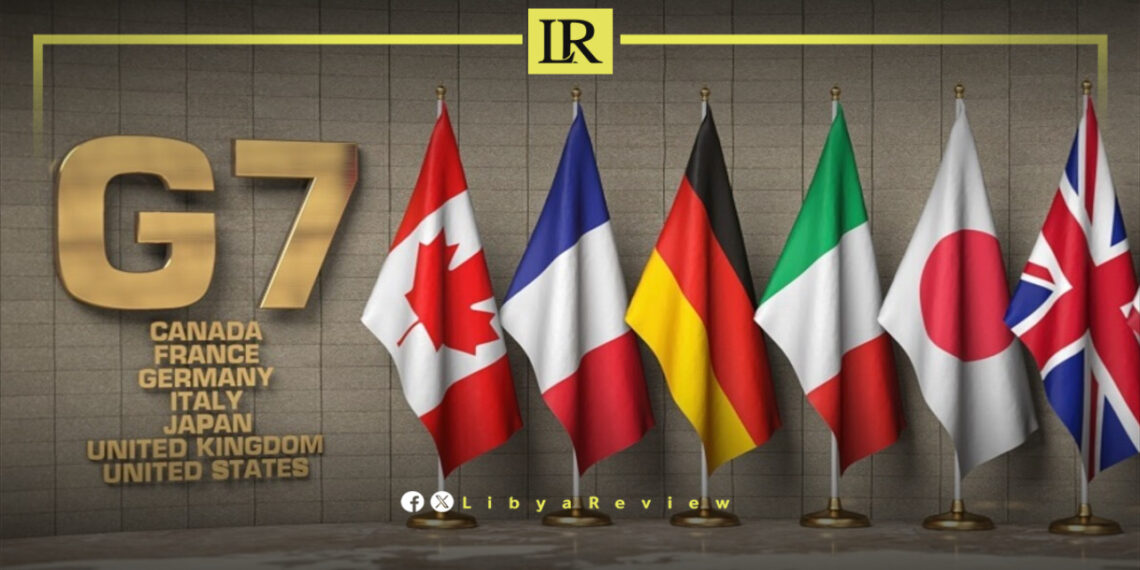Foreign ministers from the Group of Seven (G7) countries issued a joint statement reaffirming their commitment to preserving Libya’s sovereignty, stability, independence, and territorial integrity. They emphasized the urgent need for the withdrawal of all foreign fighters and mercenaries from Libyan territory without delay.
The ministers expressed their full support for the United Nations Support Mission in Libya (UNSMIL) in facilitating inclusive and meaningful dialogue among Libyan stakeholders. They highlighted the recent agreement to appoint a new governor for the Central Bank of Libya (CBL) as a significant opportunity to reinvigorate political dialogue and work towards a comprehensive agreement.
According to the statement, the agreement on CBL leadership is expected to pave the way for free and fair presidential and parliamentary elections. It also serves as a crucial step toward unifying Libya’s political, economic, and military institutions.
In addition, the G7 ministers underscored their support for Libya’s High National Elections Commission and praised the successful completion of the first round of municipal elections. They expressed optimism that these efforts will mark the beginning of lasting stability in the country.
Libya has been in chaos since a NATO-backed uprising toppled longtime leader Muammar Gaddafi in 2011. The county has for years been split between rival administrations.
Libya’s economy, heavily reliant on oil, has suffered due to the ongoing conflict. The instability has led to fluctuations in oil production and prices, impacting the global oil market and Libya’s economy.
The conflict has led to a significant humanitarian crisis in Libya, with thousands of people killed, and many more displaced. Migrants and refugees using Libya as a transit point to Europe have also faced dire conditions.
The planned elections for December 2021 were delayed due to disagreements over election laws and the eligibility of certain candidates. This delay has raised concerns about the feasibility of a peaceful political transition.
Despite the ceasefire, security remains a significant concern with sporadic fighting and the presence of mercenaries and foreign fighters. The unification of the military and the removal of foreign forces are crucial challenges.


